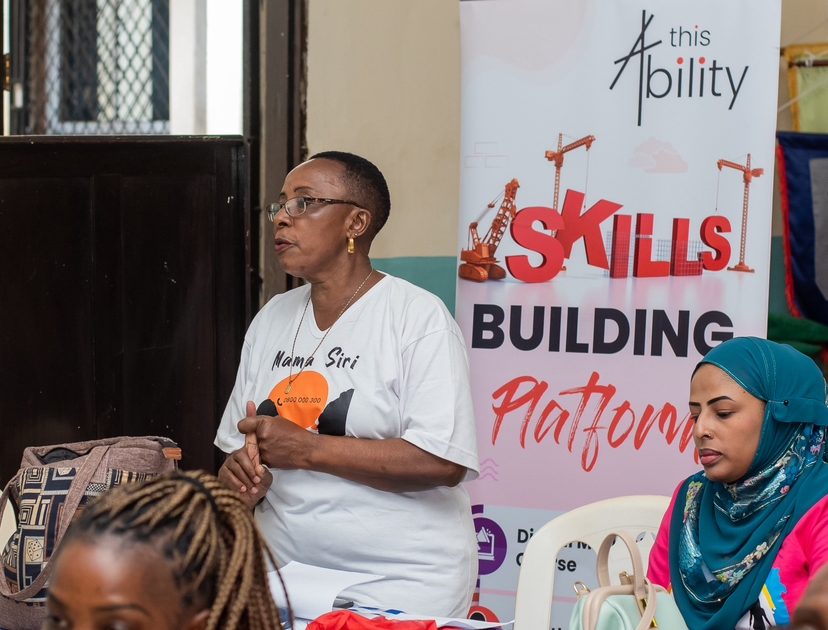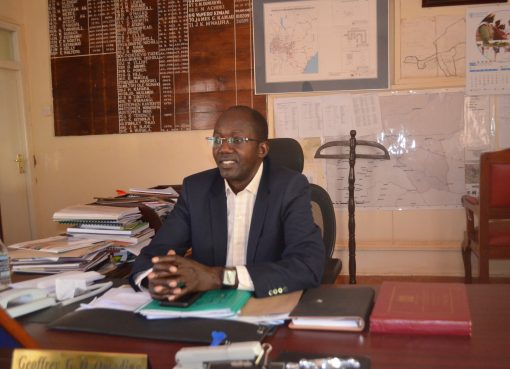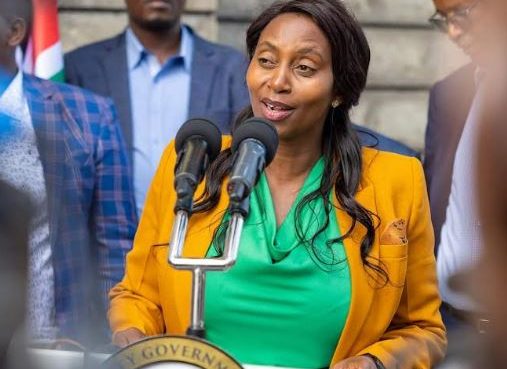A women-led non-profit organisation, This Ability Trust, is calling for the inclusion of sign language courses in the training of health professionals to enhance communication with visual and hearing impairment patients.
Patients usually bear the brunt of a lack of communication when seeking medical services as most health care providers are not proficient in sign language.
The organisation sensitised Changamwe Sub-County women living with disabilities to know their rights.
This Ability Trust operates in 13 counties: Kwale, Mombasa, Kilifi, Nairobi, Kajiado, Kisumu, Uasin Gishu, Kakamega, Narok, Isiolo, Marsabit, Wajir and Mandera.
It deals with challenges faced by women with disabilities in Sexual and Reproductive Health and Rights (SRHR).
“Women with disabilities face challenges when seeking health services and they are not treated as other women especially when they are pregnant. They are treated with disdain on why they got pregnant. Others are assaulted, booked to Caesarean Section while they can deliver normally,” said Florence Kaha, Program Officer, This Ability Trust.
“We want all hospitals to have sign language interpreters if possible or sign language interpretation to be part of the medical training curriculum for the health providers to communicate with Persons Living with Disabilities (PLWDs). You may find a deaf person misdiagnosed as they don’t understand their language,” she added.
The organization ensures that disabled women are not discriminated against but are treated equally.
Kaha noted that most hospitals are not friendly to women living with disabilities and they are not even given the freedom to choose the contraception method they prefer.
The organization has a toll-free number dubbed Mama Siri (0800 000 300) where disenfranchised women can call to report the nature of their problem and the specific hospital for immediate action to be taken.
This Ability Trust organisation has a team of dedicated lawyers to handle cases involving women and children with disabilities.
Families, Kaha observed are the weakest link in the prosecution of sexual abuse cases to conviction as they prefer out-of-case settlement.
To improve service delivery to disabled women, the organization has trained 185 healthcare providers in 22 healthcare centres on how to handle women living with disability.
“The 13 counties have each submitted ten names of health care workers to be trained to better understand women living with disability,” stated Kaha.
She advised mothers with children living with disability not to hide them in their houses but to instead take them to special schools.
Sharifa Athman, living with albinism echoed Kaha’s sentiments on the need to have sign language interpreters in health facilities to help disabled persons.
“Most short-statured women cannot climb hospital delivery beds which are elevated. Most nurses are not proficient in sign language. There is no privacy when a disabled person seeks treatment a third party must be involved to interpret,” she said.
She added that if doctors or nurses had learned sign language it would be easier to diagnose a disabled patient.
The organization is also validating a policy brief that addresses issues affecting women with disabilities. The policy will be submitted to all the 47 County Assemblies.
“The policy speaks on issues of attitudes, the complaints that women living with disabilities are encountering. The policy has recommendations and examples. The main aim is to adopt the policy at the national level to be domesticated in all counties,” stated Lucas Robert, a facilitator of the policy.
By Sadik Hassan




